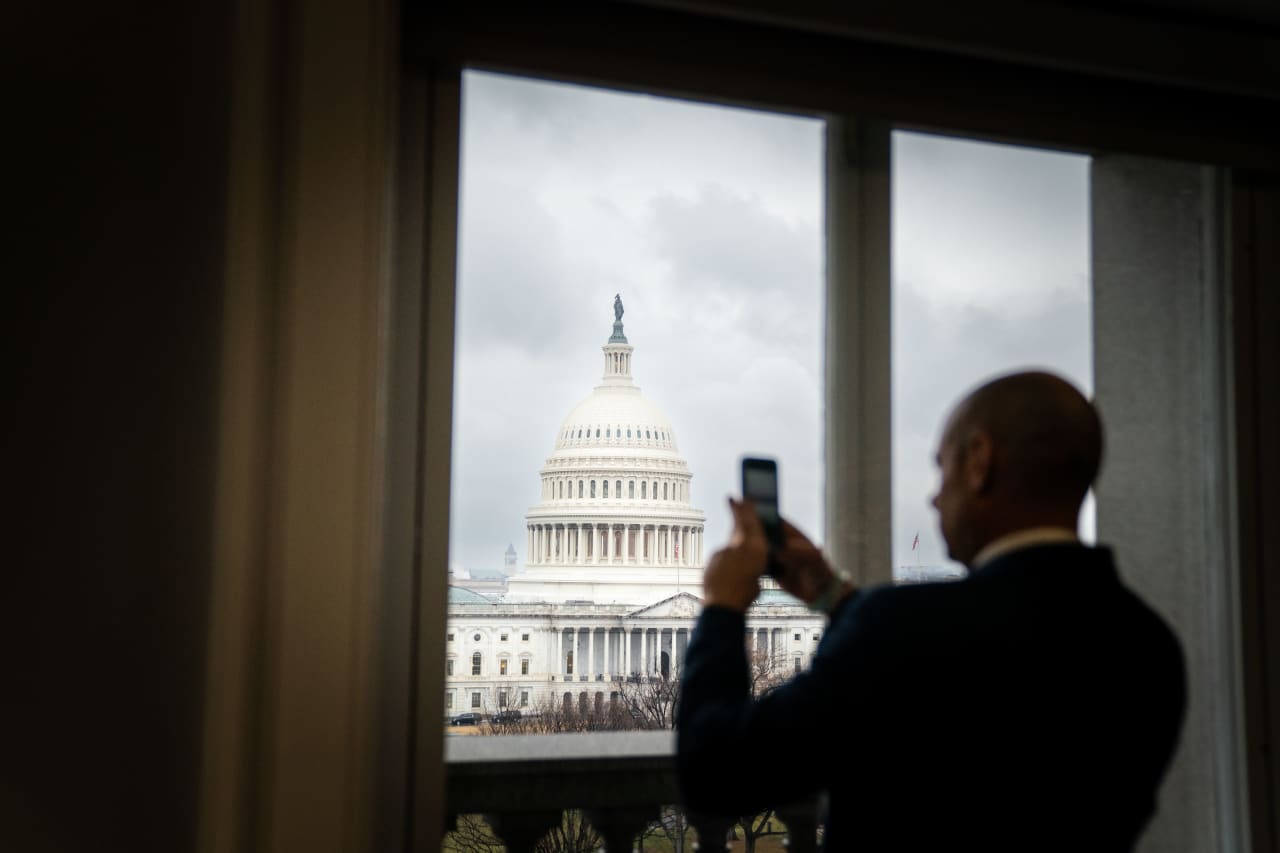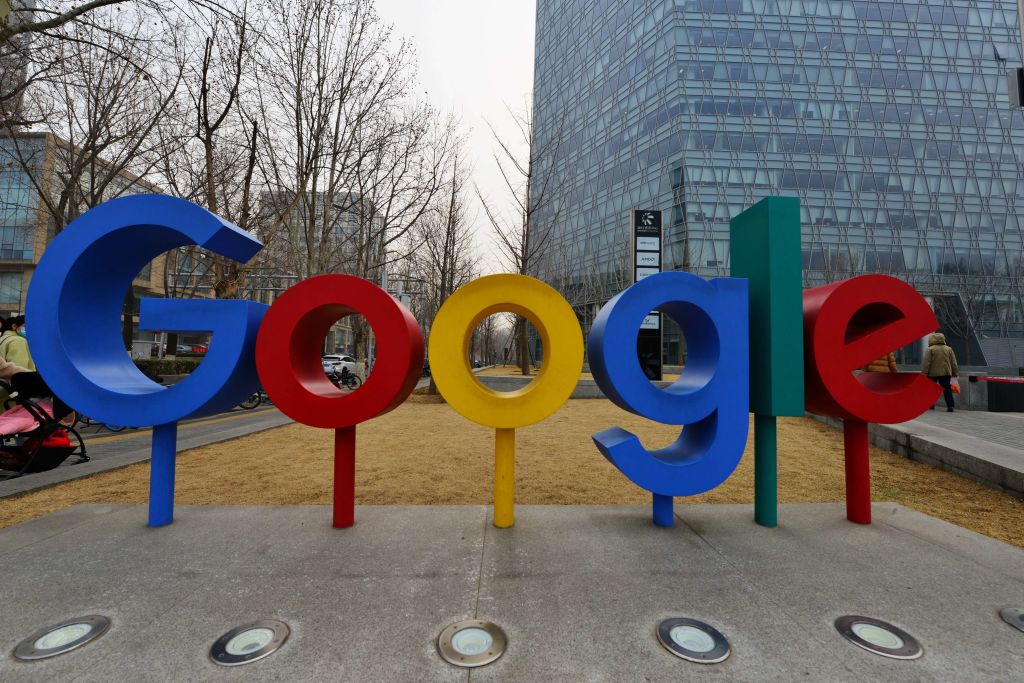TikTok urged its users to call Congress and lawmakers to drop a bill that could ban the popular video-sharing app in the U.S., and those users listened.
But the plan backfired. Instead of dropping the bill, which was introduced just two days ago, the House Energy and Commerce Committee approved it in a 50-0 vote Thursday afternoon. House Majority Leader Steve Scalise said he’s bringing it to a floor vote.
That was after beleaguered house staffers across the Capitol grounds endured hours of office phones ringing off the hook in an all-out push from TikTok users.
While TikTok the company has criticized efforts to ban it or crack down on it, this week’s legislative move prompted the social media company to appeal directly to users.
“TikTok is at risk of being shut down in the U.S. Call your representative now,” the app told its users when they logged into their accounts.
The app asked users to enter their ZIP codes and then directed them to their local congressional representatives.
TikTok was responding to a measure proposed Tuesday by Reps. Mike Gallagher (R, Wisc.) and Raja Krishnamoorthi (D, Ill.), co-chairs of the House Select Committee on the Chinese Communist Party, that claims TikTok “poses a grave threat to U.S. national security.”
TikTok, based in Singapore, is owned by China-based ByteDance, and that’s what lawmakers object to. The measure focuses on “foreign adversary controlled applications.” It would require ByteDance to divest of TikTok about five months after the law is passed, or risk being removed from app stores in the U.S.
That would make it illegal to distribute TikTok through any U.S. app store or from any U.S. web-hosting platform. TikTok says that is effectively a ban of the platform.
A TikTok spokesperson told Barron’s that “This legislation has a predetermined outcome: a total ban of TikTok in the United States.”
“The government is attempting to strip 170 million Americans of their Constitutional right to free expression,” spokesperson Alex Haurek said. “This will damage millions of businesses, deny artists an audience, and destroy the livelihoods of countless creators across the country.”
TikTok CEO Shou Zi Chew and others have repeatedly insisted that ByteDance and TikTok aren’t controlled by the Chinese government or Chinese Communist Party, and that U.S. user data is stored securely in Singapore and the U.S.
Krishnamoorthi said on X that TikTok has “launched a massive propaganda campaign, requiring users to call their representatives, and falsely labeling our legislation a ‘total ban’ of TikTok.”
“Phones are completely bogged down hearing from students, young adults, adults, and business owners who are all concerned at the option of losing their access to the platform,” a Republican aide told Axios.
The National Security Council has called the bill “an important and welcome step” to addressing risks to sensitive U.S. data, and the White House has said that if Congress passes it, President Joe Biden would sign it.
 Copyright 2020, Dow Jones & Company, Inc. All Rights Reserved Worldwide. LEARN MORE
Copyright 2020, Dow Jones & Company, Inc. All Rights Reserved Worldwide. LEARN MORE
What a quarter-million dollars gets you in the western capital.
Alexandre de Betak and his wife are focusing on their most personal project yet.
CIOs can take steps now to reduce risks associated with today’s IT landscape
As tech leaders race to bring Windows systems back online after Friday’s software update by cybersecurity company CrowdStrike crashed around 8.5 million machines worldwide, experts share with CIO Journal their takeaways for preparing for the next major information technology outage.
Be familiar with how vendors develop, test and release their software
IT leaders should hold vendors deeply integrated within IT systems, such as CrowdStrike , to a “very high standard” of development, release quality and assurance, said Neil MacDonald , a Gartner vice president.
“Any security vendor has a responsibility to do extensive regression testing on all versions of Windows before an update is rolled out,” he said.
That involves asking existing vendors to explain how they write software, what testing they do and whether customers may choose how quickly to roll out an update.
“Incidents like this remind all of us in the CIO community of the importance of ensuring availability, reliability and security by prioritizing guardrails such as deployment and testing procedures and practices,” said Amy Farrow, chief information officer of IT automation and security company Infoblox.
Re-evaluate how your firm accepts software updates from ‘trusted’ vendors
While automatically accepting software updates has become the norm—and a recommended security practice—the CrowdStrike outage is a reminder to take a pause, some CIOs said.
“We still should be doing the full testing of packages and upgrades and new features,” said Paul Davis, a field chief information security officer at software development platform maker JFrog . undefined undefined Though it’s not feasible to test every update, especially for as many as hundreds of software vendors, Davis said he makes it a priority to test software patches according to their potential severity and size.
Automation, and maybe even artificial intelligence-based IT tools, can help.
“Humans are not very good at catching errors in thousands of lines of code,” said Jack Hidary, chief executive of AI and quantum company SandboxAQ. “We need AI trained to look for the interdependence of new software updates with the existing stack of software.”
Develop a disaster recovery plan
An incident rendering Windows computers unusable is similar to a natural disaster with systems knocked offline, said Gartner’s MacDonald. That’s why businesses should consider natural disaster recovery plans for maintaining the resiliency of their operations.
One way to do that is to set up a “clean room,” or an environment isolated from other systems, to use to bring critical systems back online, according to Chirag Mehta, a cybersecurity analyst at Constellation Research.
Businesses should also hold tabletop exercises to simulate risk scenarios, including IT outages and potential cyber threats, Mehta said.
Companies that back up data regularly were likely less impacted by the CrowdStrike outage, according to Victor Zyamzin, chief business officer of security company Qrator Labs. “Another suggestion for companies, and we’ve been saying that again and again for decades, is that you should have some backup procedure applied, running and regularly tested,” he said.
Review vendor and insurance contracts
For any vendor with a significant impact on company operations , MacDonald said companies can review their contracts and look for clauses indicating the vendors must provide reliable and stable software.
“That’s where you may have an advantage to say, if an update causes an outage, is there a clause in the contract that would cover that?” he said.
If it doesn’t, tech leaders can aim to negotiate a discount serving as a form of compensation at renewal time, MacDonald added.
The outage also highlights the importance of insurance in providing companies with bottom-line protection against cyber risks, said Peter Halprin, a partner with law firm Haynes Boone focused on cyber insurance.
This coverage can include protection against business income losses, such as those associated with an outage, whether caused by the insured company or a service provider, Halprin said.
Weigh the advantages and disadvantages of the various platforms
The CrowdStrike update affected only devices running Microsoft Windows-based systems , prompting fresh questions over whether enterprises should rely on Windows computers.
CrowdStrike runs on Windows devices through access to the kernel, the part of an operating system containing a computer’s core functions. That’s not the same for Apple ’s Mac operating system and Linux, which don’t allow the same level of access, said Mehta.
Some businesses have converted to Chromebooks , simple laptops developed by Alphabet -owned Google that run on the Chrome operating system . “Not all of them require deeper access to things,” Mehta said. “What are you doing on your laptop that actually requires Windows?”















